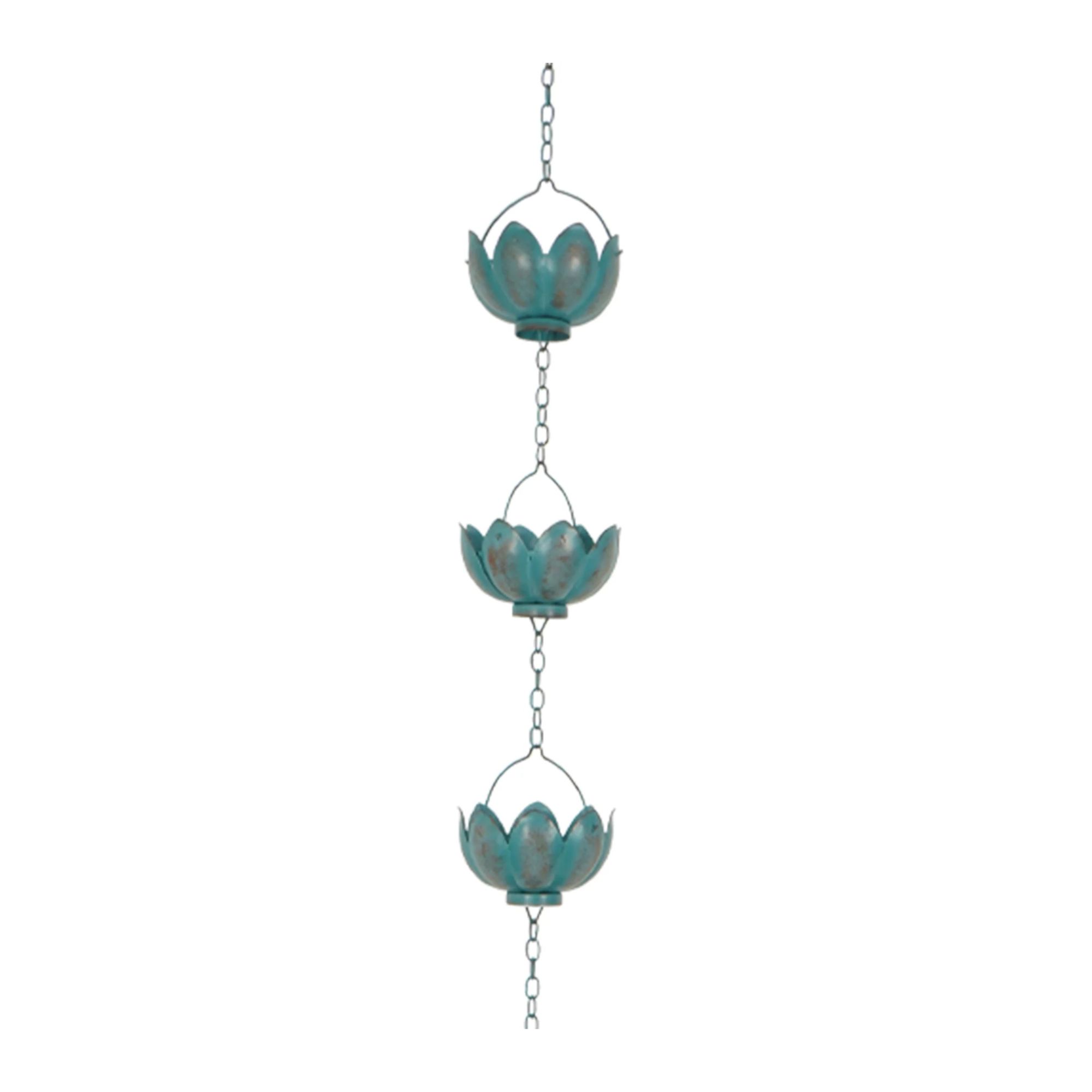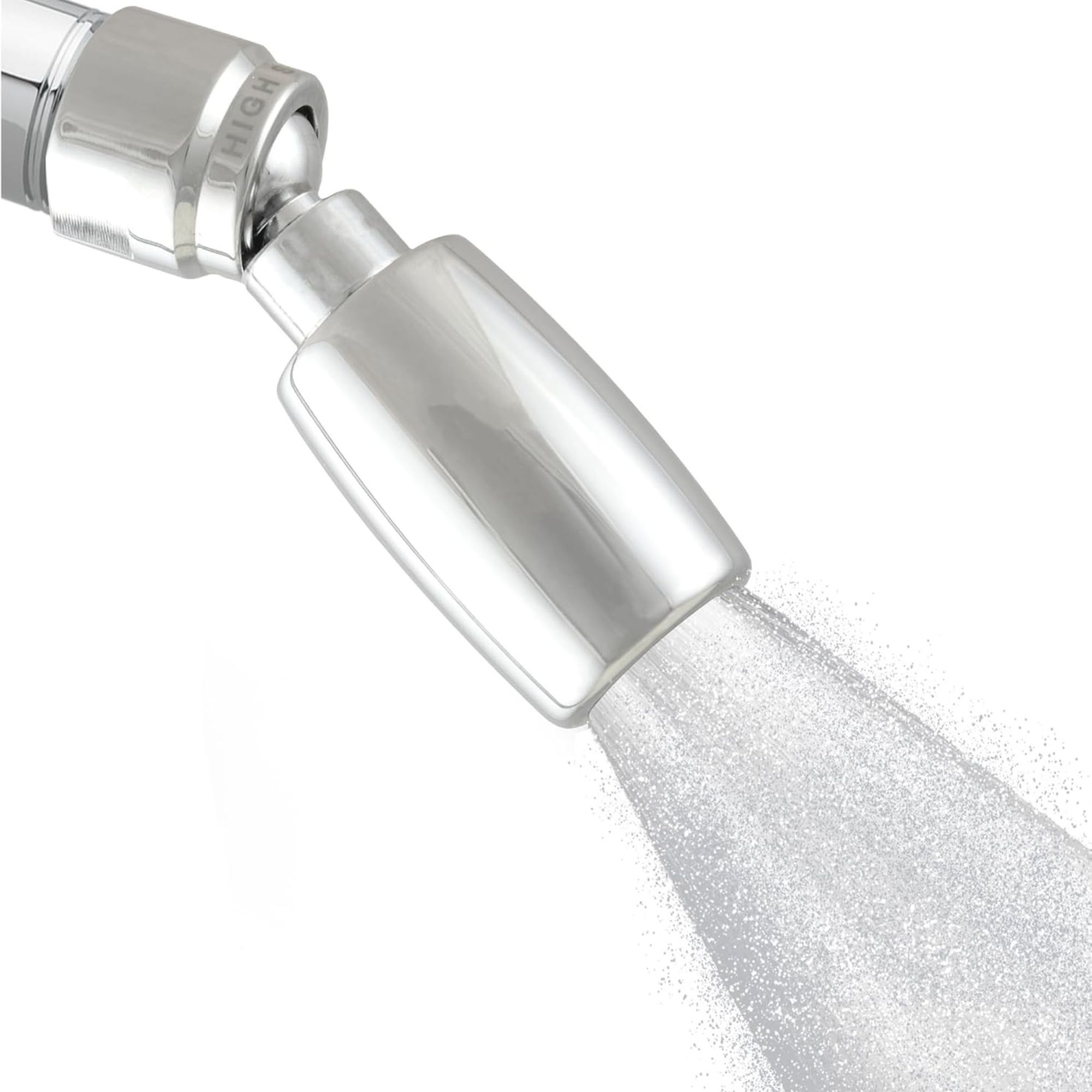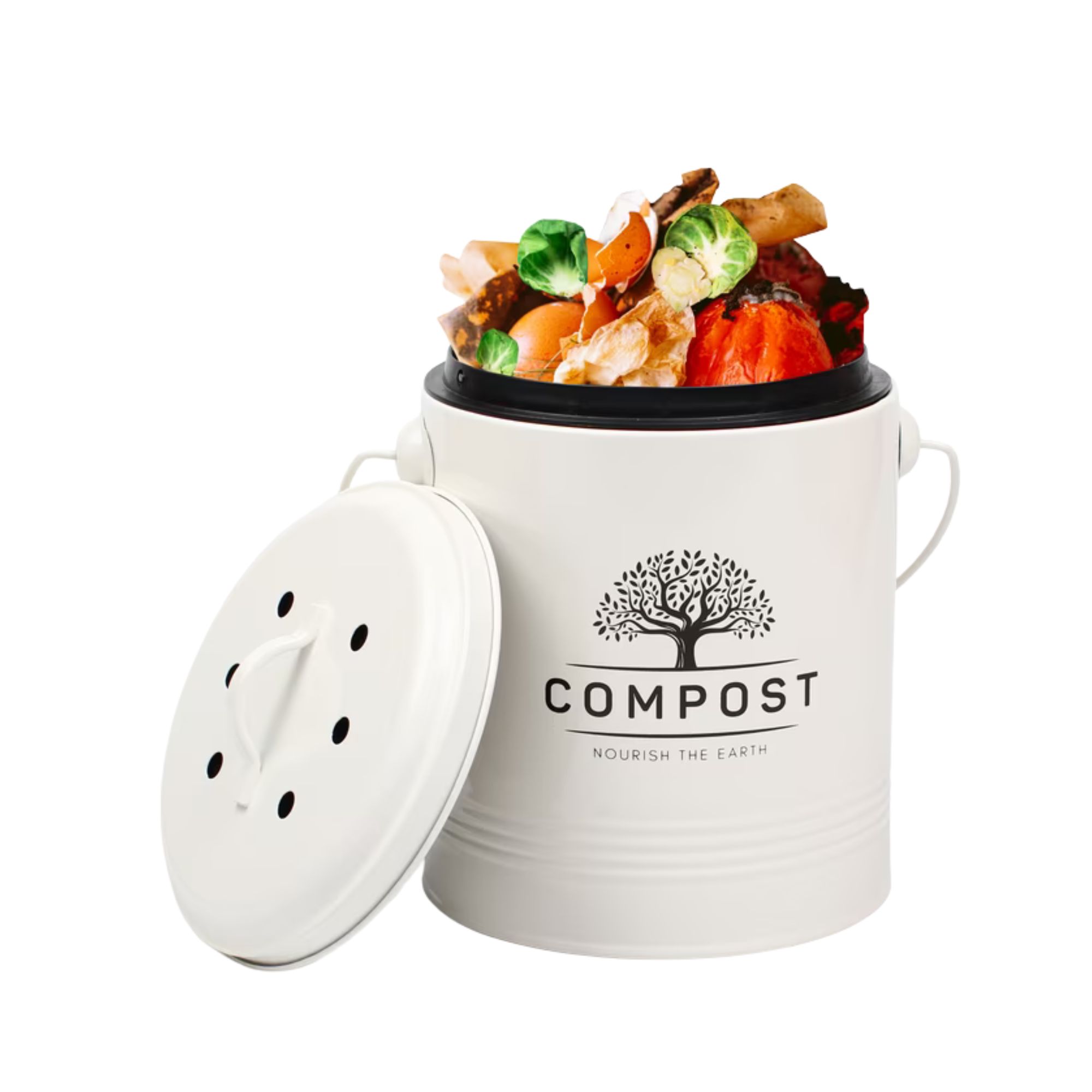How to reduce water bills – 7 expert-approved tips to help you save money and the planet this World Water Day and beyond
From low-flow fixtures to rain barrels, there are so many steps you can take

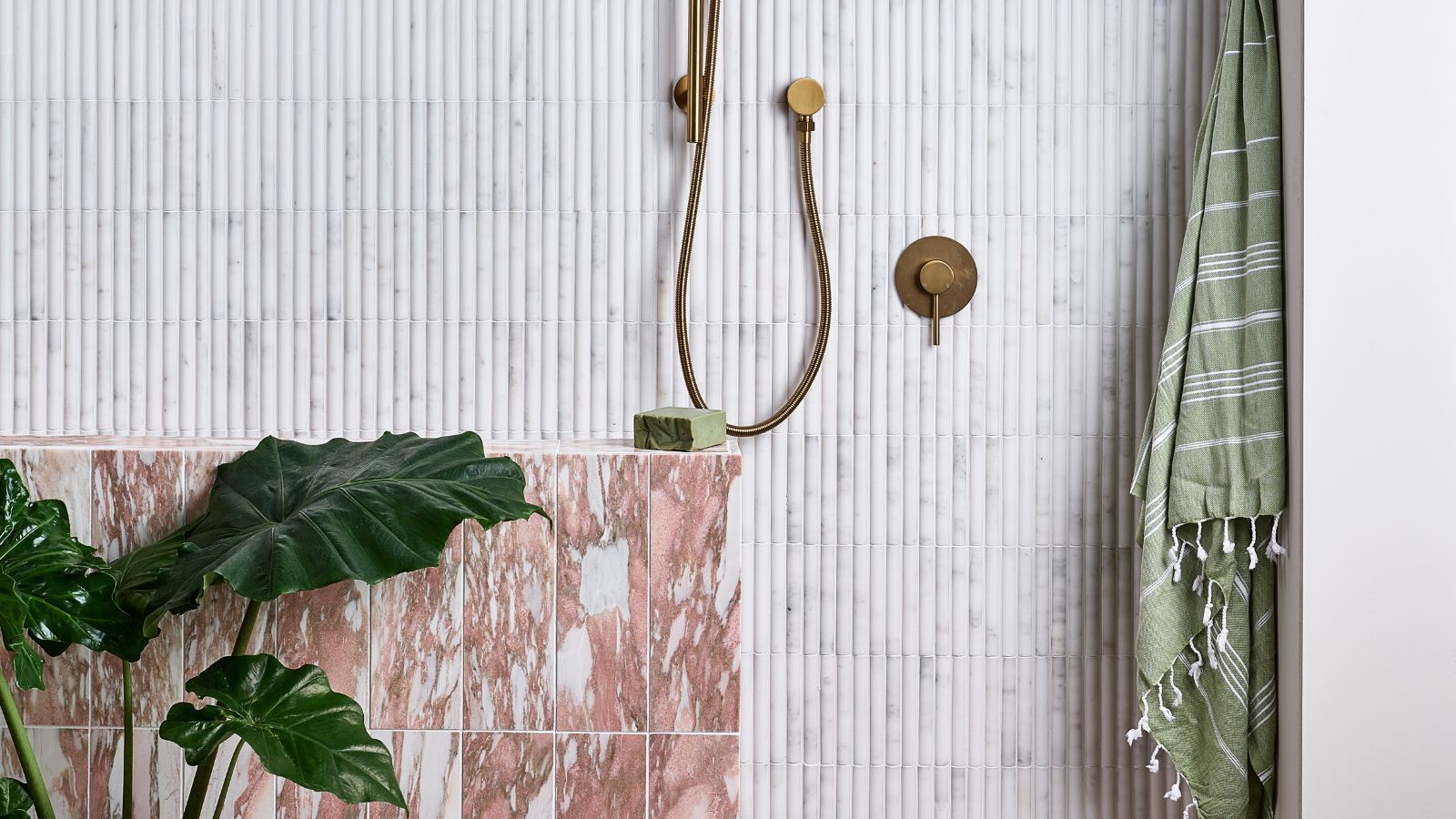
Learning how to reduce your water bills is beneficial in lots of different ways. Not only is it a brilliant way to keep spending down, but it’s also incredibly important for helping the planet.
I’ve asked a water scientist and professor, an Earth Day pro, and a plumber why it’s worth doing and for their top tips for reducing water usage around the house as we see in United Nations' World Water Day 2025 (March 22).
From simple tricks such as switching cleaning methods, to installing water-efficient fixtures, there are lots of short-term and long-term solutions out there. If you’re looking to reduce water wastage in your yard and your house, give these a go.
How to reduce water bills this World Water Day 2025 and beyond
Whilst World Water Day's theme is glacier preservation, working to lower water bills will be useful for households across the country, especially if you've been wondering recently why your water bills are so high.
‘We're all looking for ways that we can be more efficient in how we spend and conserve our money – but I also hope that these times of economic challenges can be educational opportunities for us to also think about how we can give back to the environment itself,’ explains Dr. Kelsey Leonard, a water scientist, and assistant professor at the University of Waterloo.
She says when a lot of people think about water – subconsciously or consciously – they think of it as an unlimited resource. ‘Fresh water is a very finite resource, and being able to be more conscientious about our use of it is so critical to having a healthy planet.’
This is crucial to keep in mind when deciding which tips to try out in your home.
Design expertise in your inbox – from inspiring decorating ideas and beautiful celebrity homes to practical gardening advice and shopping round-ups.
1. Log your water
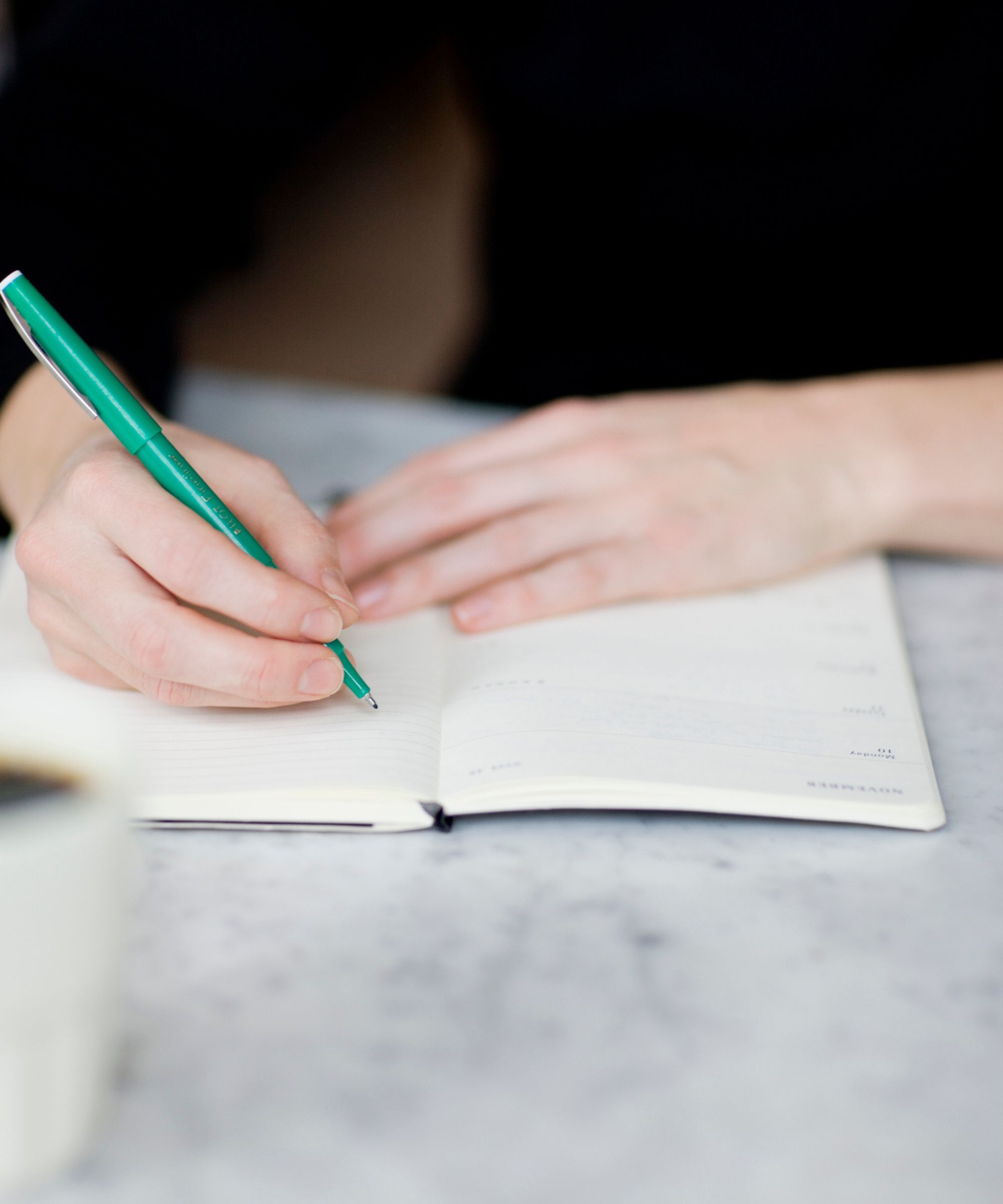
Keeping a log of your household's water usage will help you build a more accurate picture of how much water resource you're using, and where.
The first step for reducing your water bills is understanding how much you are actually using on a day-to-day basis.
Kelsey explains, ‘Log your use of water for a 24-hour period, then take a step away from it, look back on it, and then reflect on things you could be doing differently. This could be things from cooking practices, dishwashing practices, showering, bathing time, and tooth brushing time.
‘This looks different for every person and is very much culturally informed – some of the water practices we carry with us every day are habits we learn from our parents, our grandparents, or the community that we live in,’ she adds.
You can either do this on your phone or do it in a notepad – the Zicoto notepads from Amazon can be attached to your refrigerator for quick note-taking.
2. Install a hot water pump
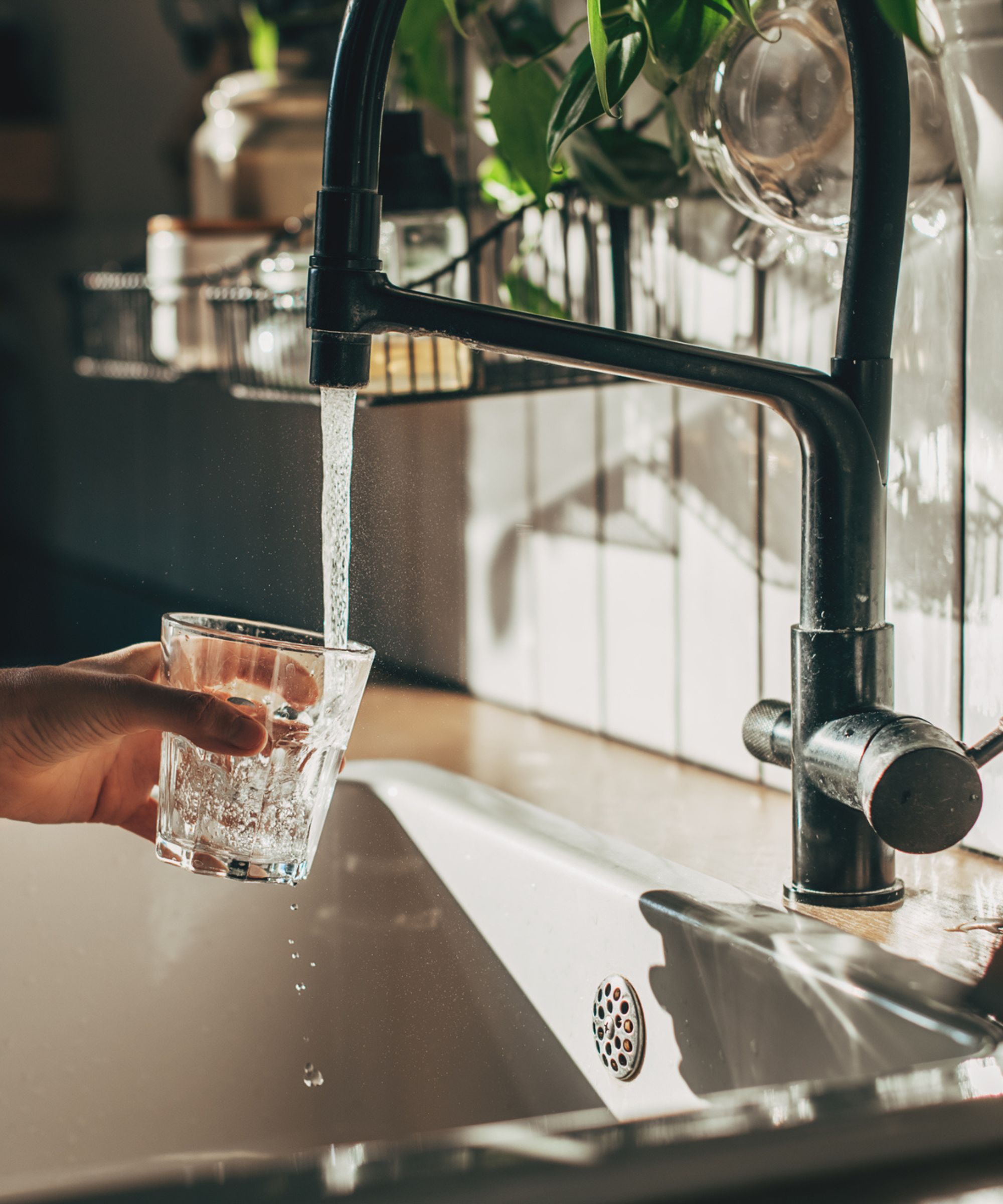
A hot water pump reduces wasted water
Have you ever thought about how much water goes down the drain while you’re waiting for it to warm up? If you haven’t, now’s the time to start. ‘On average, you can waste about 1-2 gallons of water each time you wait for hot water to reach your faucet – whether it’s just for filling a bucket to dust off the furniture or washing your dog’s paws,’ explains Danny Pen, president at New Era Plumbing & HVAC.
A hot water recirculating pump can solve this problem by reducing water waste and making hot water instantly available. ‘It keeps the hot water flowing through your pipes, so as soon as you turn on the tap, hot water is already there without waiting,’ Danny continues.
Installing a hot water recirculating pump usually costs between $300 to $700 depending on your home’s size and the system you pick. Danny adds, ‘It might seem like an unnecessary expense at first, but the savings on your water quickly make it worthwhile. Plus, you do a good deed for the planet.’
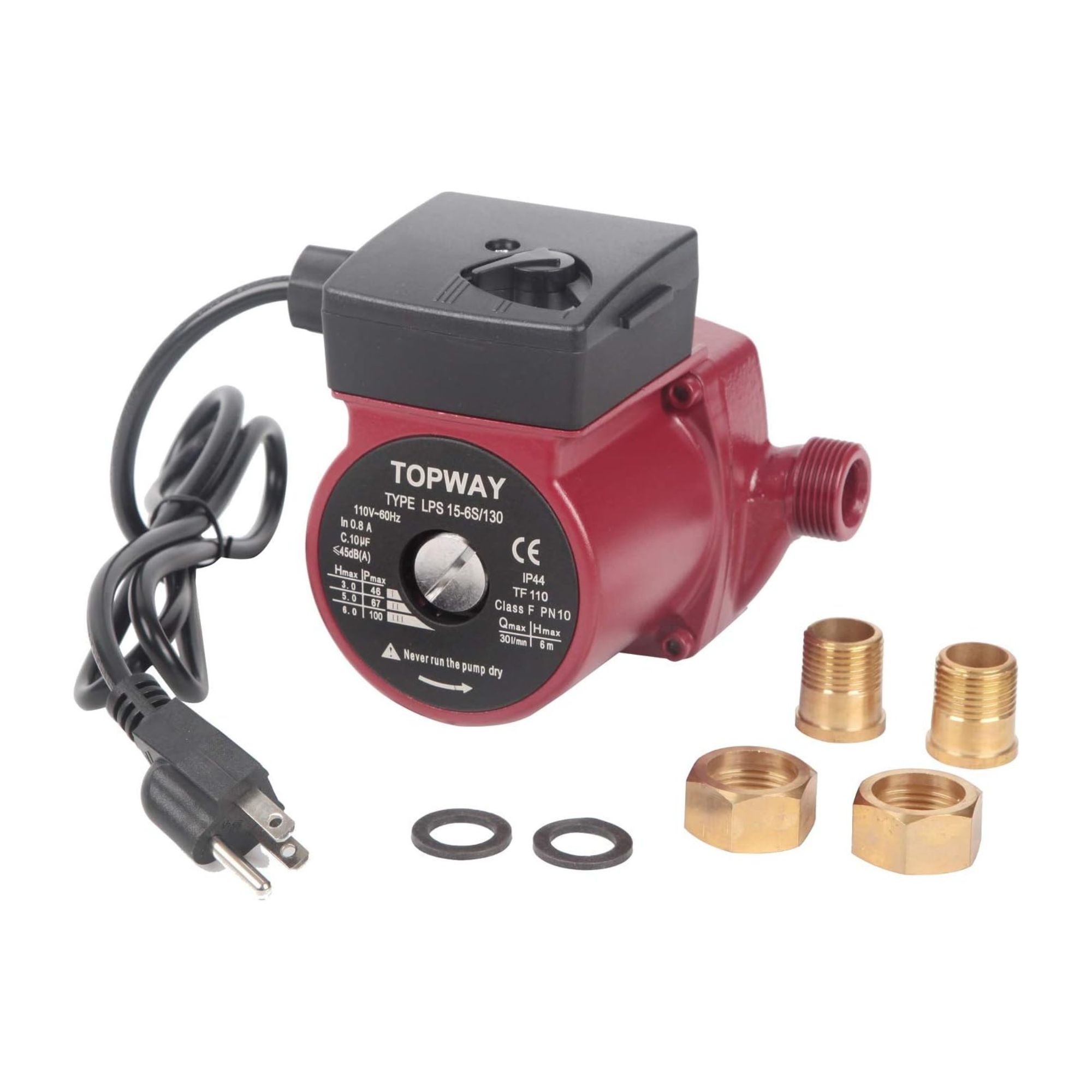
If you're looking for a budget-friendly hot water pump, this one is Amazon's Choice, meaning lots of people who buy it don't return it, it's usually available and well-reviewed. Thanks to its three-speed rated power, low noise, and the fact it prevents pipes from freezing, it'll be a good value investment.
3. Have showers instead of baths
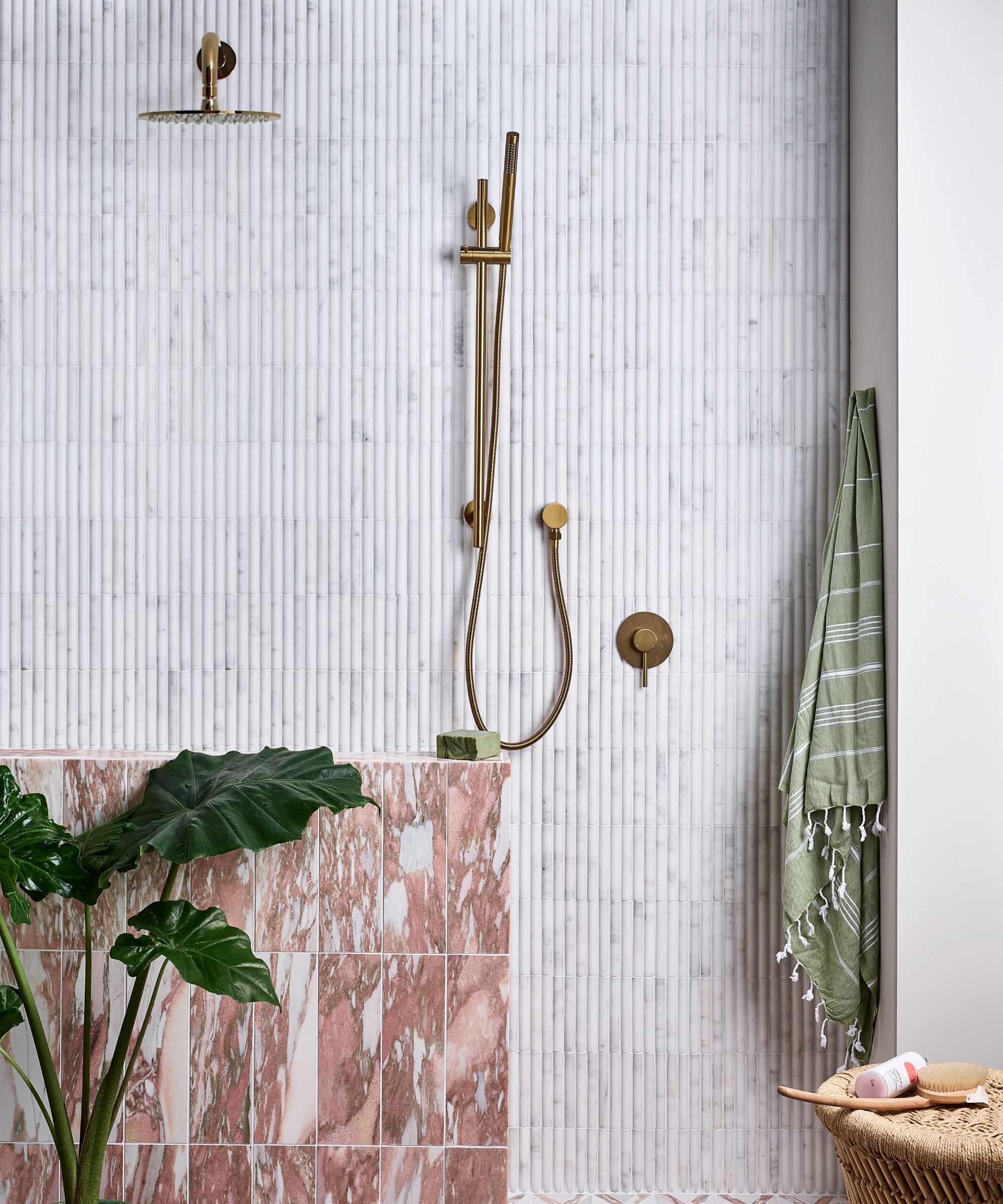
Showering uses less water than filling a bath up.
Showers use less water than baths, so if you do have the choice, showering is the best way to get clean and reduce your water bills. ‘The average shower uses 2.1 gallons of water per minute so if you stand in the shower for a glorious 10 minutes, you are using about 21 gallons of water,’ explains Sarah Topalian Davies, sustainability expert and communications director at Earthday.org.
She continues, ‘Meanwhile, a bath holds between 35 to 50 gallons of water, depending on the size – so it can use twice as much water.’
Thankfully, you do not have to compromise on comfort when it comes to choosing a shower. For example, you can switch your showerhead to a luxurious one, such as the AquaCare showerhead from Amazon which has over 59,000 five-star reviews from shoppers who say it’s easy to install and is perfect for creating a spa-style bathroom experience.
If you're limited in mobility, suffer chronic pain, and struggle to stand in the shower like Punteha van Terheyden, Head of Solved, a shower stool is a cheap and effective solution. Punteha says, 'I have gone through five shower stools and realize the round plastic ones with metal legs do not stand the test of time. I've now switched over to a rectangle one, similar to this bamboo shower stool from Wayfair and it's great.'
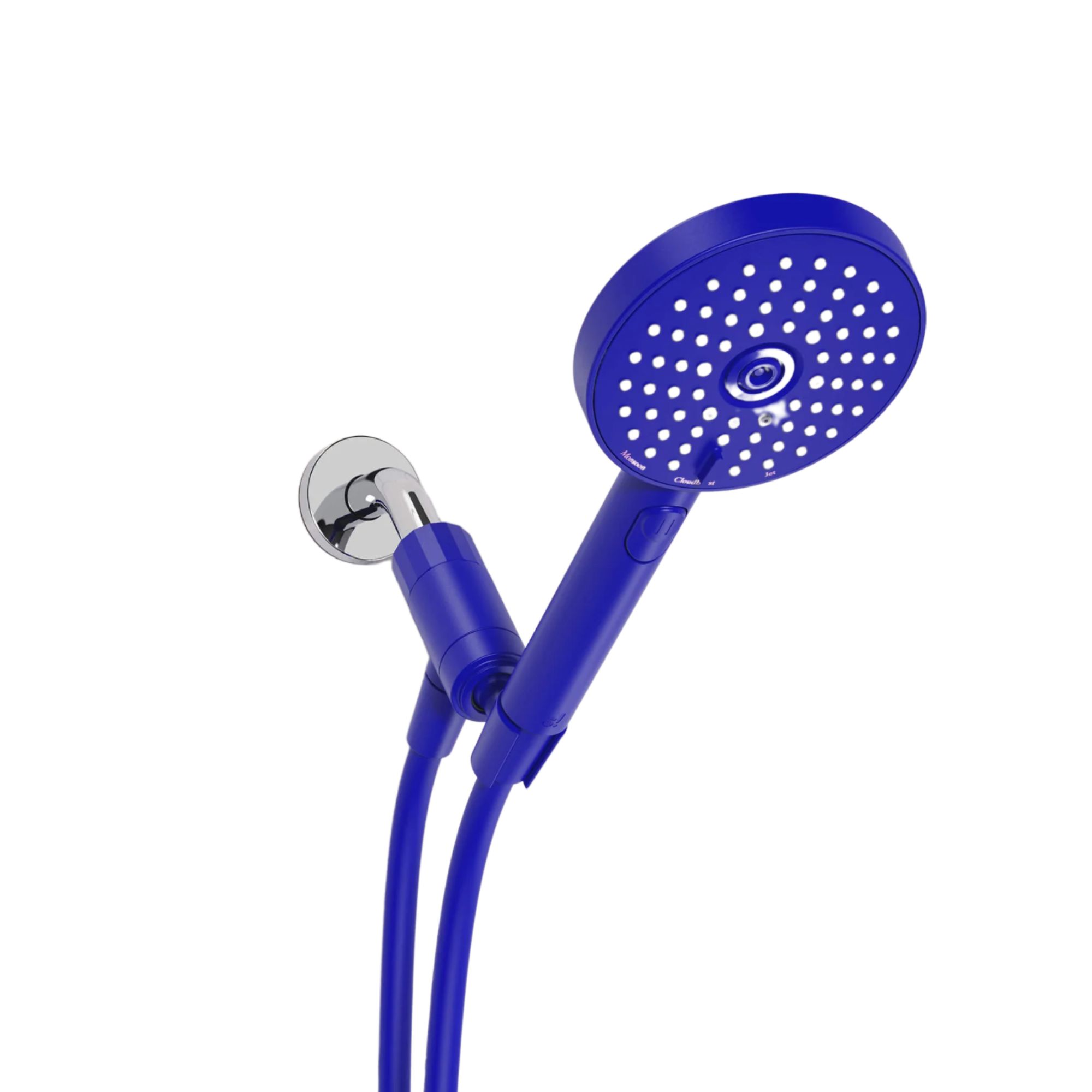
Not only will this hand shower add playfulness to colorful bathrooms, but it is also a seriously useful fixture. It has three different spray functions, a pause button to save water, and an anti-fingerprint finish.
4. Add a rain barrel outside
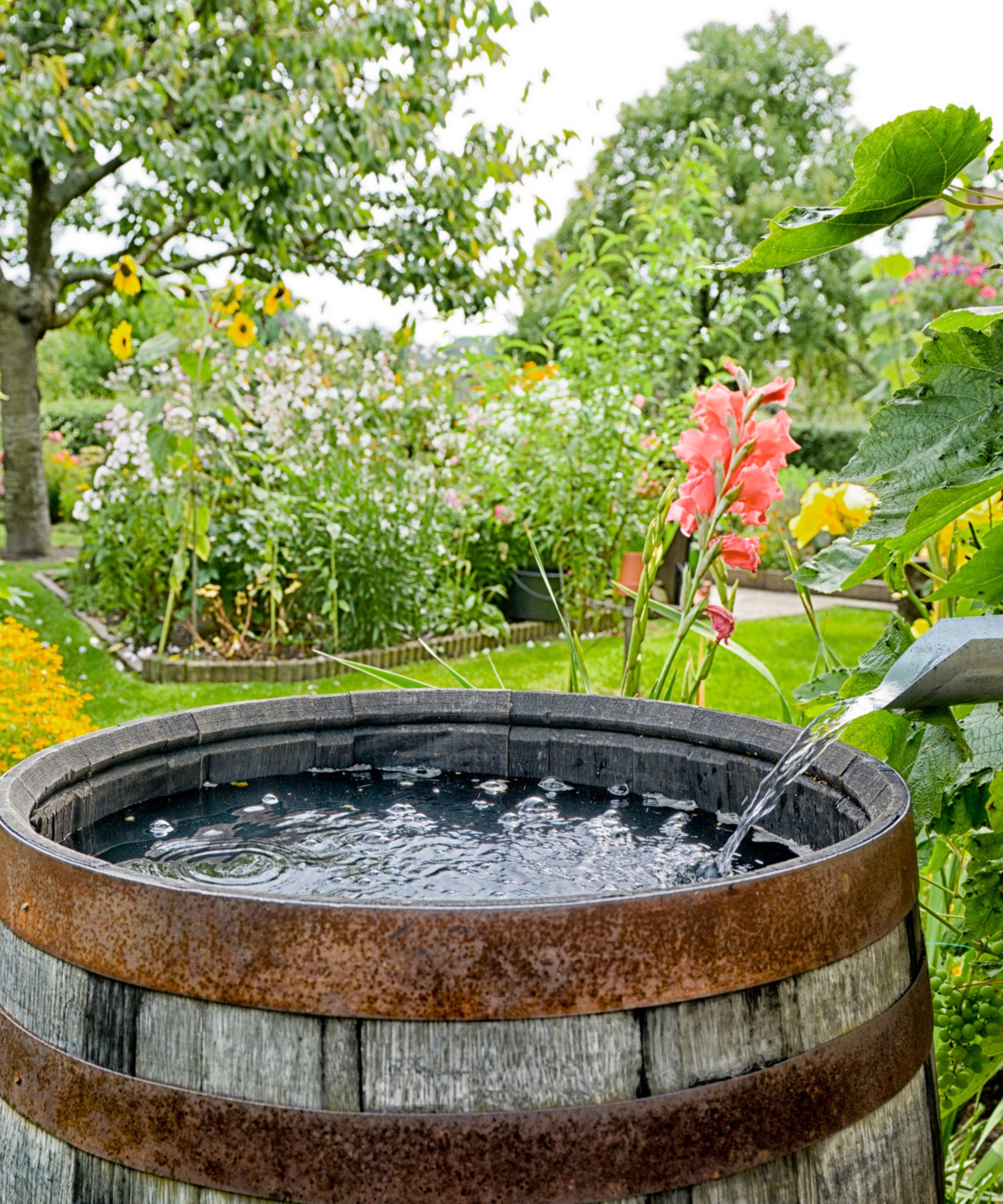
Rain barrels are a great way to keep your plants and lawns hydrated without turning on the tap and drawing down resources from the mains.
When your gutters runoff water, instead of letting it wash away, you can actually collect it for watering your garden when you need to for free. ‘A 1,000 square foot roof can collect about 600 gallons of rainwater for every inch of rain that falls,’ says Sarah. ‘So, if you live in an area where it rains 30 inches a year, you could technically collect about 18,000 gallons of water in a year.’
These come in lots of different styles – I like the neutral colors of the RTS Home Rain Barrel from Amazon, which has a brass spigot and a built-in overflow valve.
If you live in an area where rain barrels are banned and collecting rainwater can be liable to HOA fines, you could try using rain chains instead. While these won’t collect as much water, they will collect enough to water your plants – just one of the many great reasons to install a rain chain.
5. Install low-flow fixtures
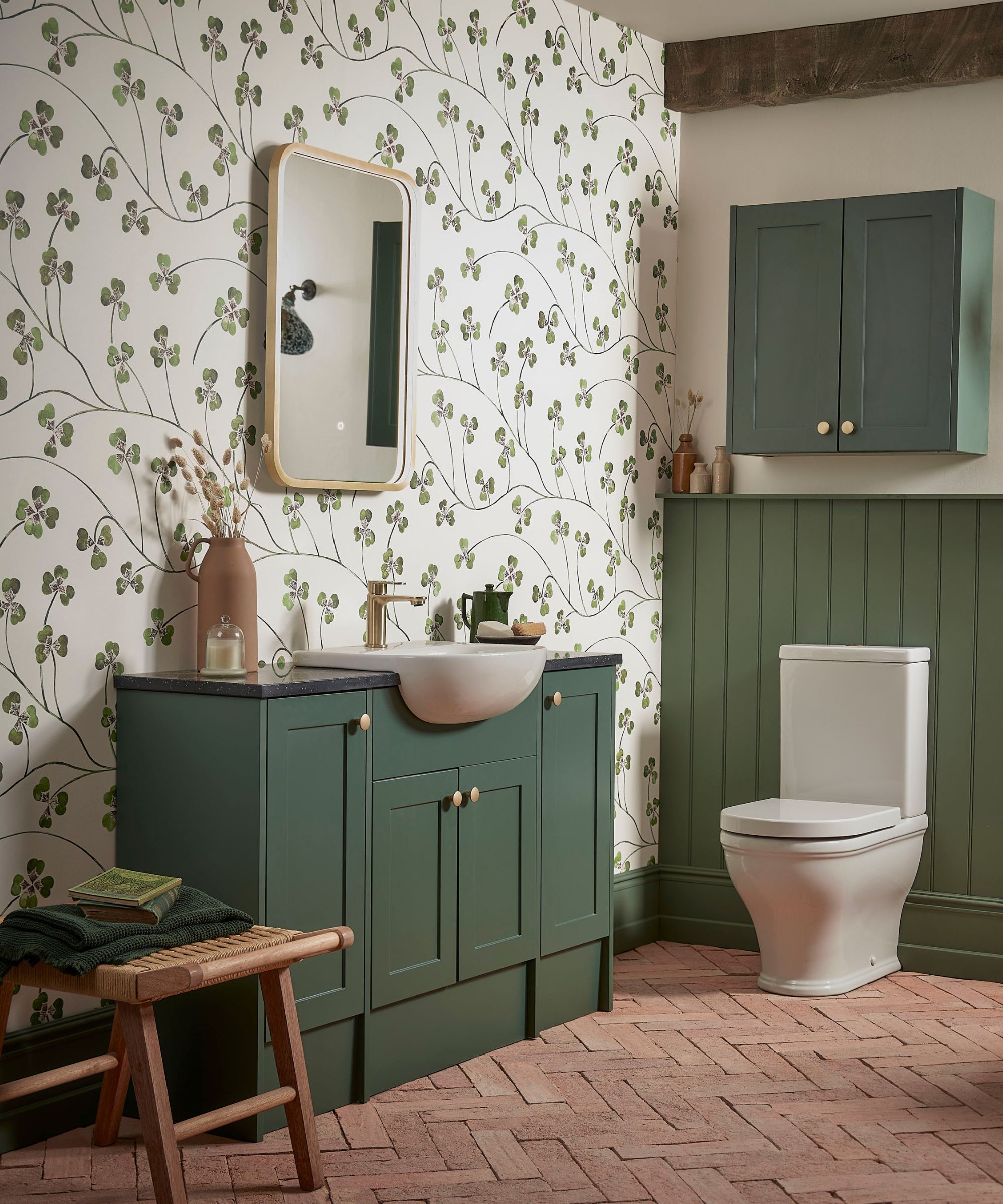
Installing fixtures designed to be more economical with water are a brilliant addition to any bathroom renovation project.
Bringing low-flow fixtures into your home is one of the smartest bathroom ideas for reducing your water bills. Sarah explains, ‘They can cut water use by as much as 50% without sacrificing performance and many of these fixtures are inexpensive and easy to install.
‘There are even low-flow toilets that use less water per flush (around 1.28 gallons vs. the older 3-5 gallons), saving hundreds of gallons of water every month,’ she adds.
You can also get low-flow faucets and showerheads, which still look just as stylish as regular ones. The Delta Modern low-flow faucet from Walmart comes in two stylish colors – chrome and black – and is perfect for modern bathrooms.
6. Use compost bins over garbage disposals
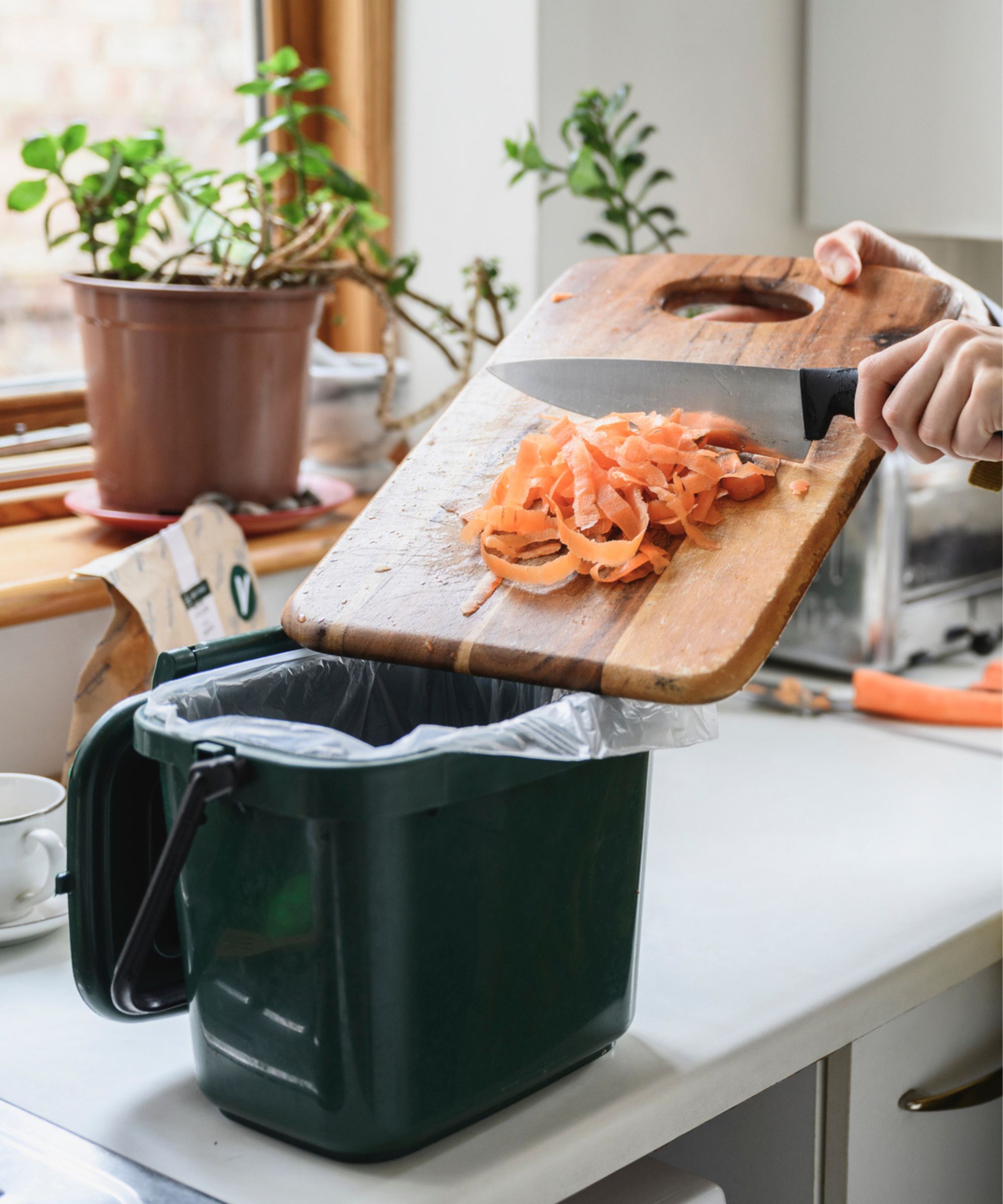
Garbage disposals are incredibly common in the US – and while they are very convenient to use, they use a lot of water while running.
Sarah says, ‘They waste water – typically two to four gallons of water per minute – while running! You can make compost with all the fruit, vegetables, carbohydrates, coffee grounds, and cereal foods instead, which gives the nutrients they contain like potassium, nitrogen, and magnesium back to the soil and saves water in the process.’
Integrating a compost bin into your routine is easy to do if you put it somewhere visible. The Simplehuman compost bin from Target is magnetic, so you can attach it to your kitchen trash can.
7. Be conscious of your washing machine
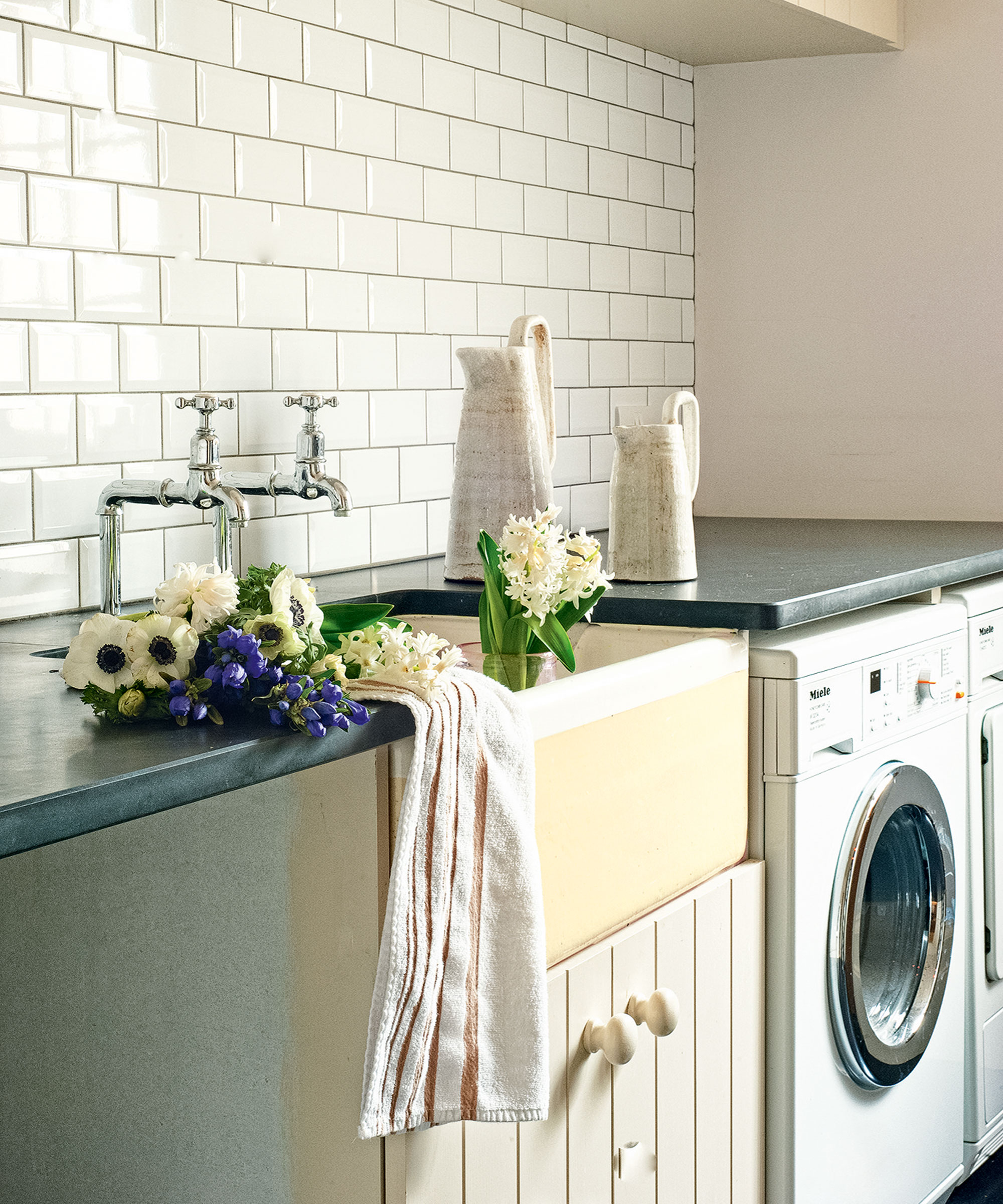
Picking a washing machine with eco-conscious water features is the best move when you're next in the market to reduce water usage when cleaning laundry at home.
Washing machines are essential household appliances, so stopping using them altogether isn’t an option. However, there are steps you can take when choosing your next model that will help you cut down your water bill.
Kelsey explains, ‘Look for WaterSense certified models and Energy Star certified models, as these generally have functions that allow for less water usage.’
It’s also important for people to be conscious of what you are washing. ‘Synthetic fabrics like fleece and nylon shed tiny plastic fibers during the washing process, which then flow through wastewater treatment plants into lakes and rivers – so we really need to be more conscientious about what we wash and how frequently we wash those items,’ Kelsey adds.
Learn more about the things you are washing too often.
Meet the experts

Dr. Kelsey Leonard is an assistant professor in the School of Environment, Resources, and Sustainability in the Faculty of Environment at the University of Waterloo. She also serves as a member of the Great Lakes Water Quality Board of the International Joint Commission.

Danny Pen leads New Era Plumbing & HVAC and boasts over 12 years of experience in plumbing, heating, and cooling. He loves advising his customers on the best ways to save water.

Sarah is the director of communcations at Earthday.org – an organization founded by the creators and organizers of the first Earth Day. She spends plenty of her time giving advice on how to be more sustainable and saving water is a speciality of hers.
Now you know how to reduce your water bills, you can continue building your water usage knowledge.
Kelsey finishes by saying, ‘I really want to encourage people to look at their water bills and utility dashboards, as some people never even look to see how much they've used. Everybody needs to do more to build their water literacy.’
Want to carry on searching for more eco-friendly home ideas? Finding out about the different kinds of solar panels may also come in useful.

Eve is a freelance lifestyle editor and writer with over five years of experience working for digital and print titles. Previously she was a content editor at Real Homes. She has a keen eye for sophisticated style and is able to spot design trends before they go viral. As well as this, she loves solving pain points around the home. Alongside writing for Homes and Gardens, she writes for House Beautiful, Apartment Therapy, and is the founding editor of The Notts Edit. When she’s not writing, you can find her decorating her rental with Scandi decor, tending to her houseplants, and growing vegetables in her garden.
